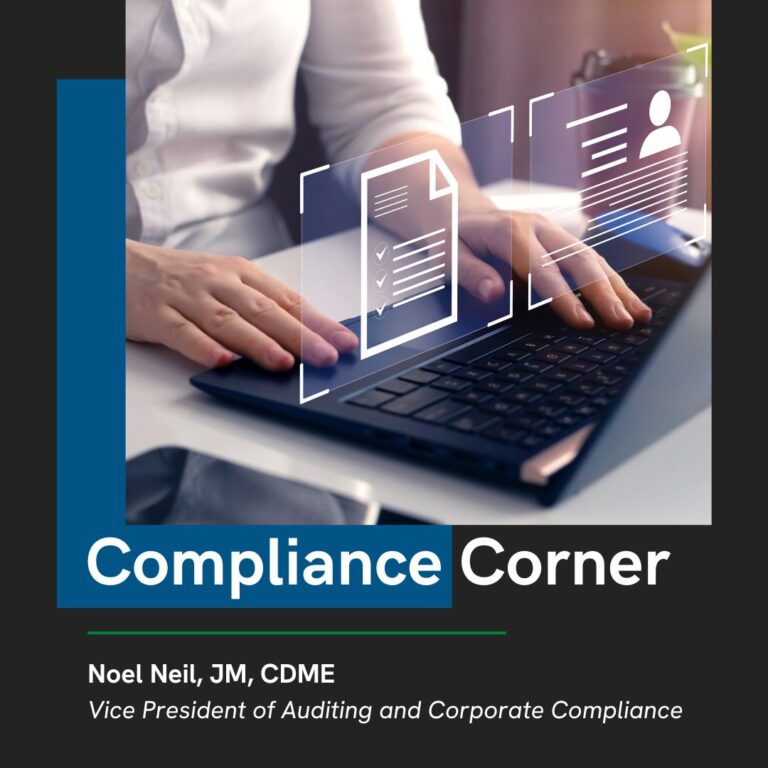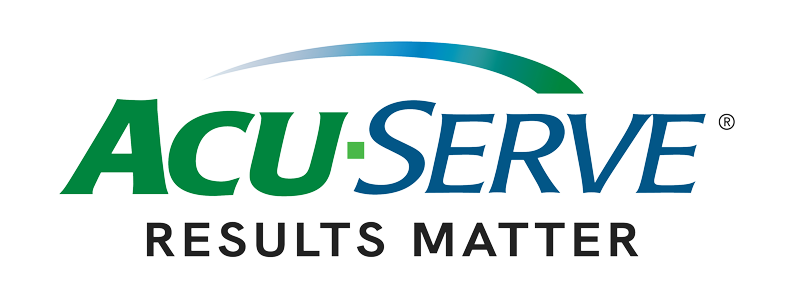
Understanding Medicare Compliance: Avoiding Violations of Federal Laws
Do you know failing to collect or failing to document a “reasonable collection effort” to collect the Medicare deductible, and/or coinsurance may violate Federal Anti-Kickback Statue (AKS), Beneficiary (Patient) Inducement Statute and False Claim Act (FCA)? According to Chapter 23 of the Claims Processing Manual section 80.8.1 (CPM), “Physicians or suppliers who routinely waive the collection of deductible or coinsurance from a beneficiary constitute a violation of the law pertaining to false claims and kickbacks.1 In May 1991 the Office of Inspector General (OIG) issued a Special Fraud Alert titled Routine Waiver of Copayments or Deductibles under Medicare Part B.” In response to the question as to why it is illegal for charged based providers, practitioners and suppliers to routinely waive Medicare copayment and deductibles, the bulleting states “routine waiver of deductibles and copayments by charge-based providers, practitioners or suppliers is unlawful because it results in 1) false claims, 2) violations of the anti-kickback statute, and 3) excessive utilization of items and services paid for by Medicare.”2
Can you avoid violating the federal laws by simply mailing three (3) statements to the patient or their financial designee before writing off the balance?
No, Medicare requires suppliers to make a reasonable collection effort in collecting the coinsuranceand deductible from the beneficiaries. According to Chapter 23 of the Claims Processing Manual (CPM) section 80.8.1, “To be considered a reasonable collection effort, the effort to collect Medicare coinsurance/deductible amounts must be similar to the effort made to collect comparable amounts from non-Medicare patients. It must also involve the issuance of a bill to the beneficiary or to the party responsible for the patient’s personal financial obligations. In addition, it may include other actions, such as subsequent billings, collection letters and telephone calls or personal contacts which constitute a genuine, rather than token, collection effort.” 1 Arriva Medical LLC and their parent company, August 2021, agreed to pay the government $160 Million to resolve alleged false claims to Medicare. Amongst the issues cited in the Department of Justice (DOJ), there was an allegation that “Arriva allegedly routinely waived, and failed to make reasonable efforts to collect, Medicare copayments. It allegedly failed to send invoices to beneficiaries, and failed to take other basic steps, like sending collection letters or making phone calls, to collect copayments. Specifically, Arriva allegedly systematically waived “small” dollar copayments without informing beneficiaries of their copayment obligations by sending them an invoice, and allegedly automatically waived other unpaid copayments after sending no more than three invoices seeking payment and making no other collection efforts.” 3
We can deduce from the CPM and the DOJ settlement that merely mailing three invoices will not meet the “reasonable collection effort” requirement to prevent violation of the federal laws. Suppliers should make a genuine effort to collect the member’s cost sharing responsibility. Suppliers are encouraged to have a policy and procedure in place for the patient collections. This should be a part of the company’s overall compliance program. Suppliers can attempt patient collections themselves or they can contract with a third-party patient collections company. ACU-Serve currently does not offer patient collection services.
There may be the temptation to mass adjusts balances below a certain threshold. Suppliers should mindful such adjustment does not unintentionally waive Medicare beneficiary copayment. Think for example the coinsurance on nebulizer. If the supplier automatically adjusts balances below a certain threshold every month, there is a possibility some patients would not receive an invoice therefore the supplier may violate rules unintentionally.
Can I write off the balance due to financial hardship?
It depends! Suppliers can have a financial hardship program to which beneficiaries may qualify for a hardship waiver. However, suppliers cannot market or advertise the waiver program. The program should be offered to beneficiaries who expressed the need financially. Suppliers should also adopt a written policy and procedure for the hardship program. The policy should clearly outline the criteria used to determine eligibility. ACU-Serve recommends suppliers consult their Compliance Department, Compliance Consultant or Healthcare attorney for more information on a comprehensive compliance hardship program. Routinely writing off balance without an affective hardship program may run afoul the federal regulations. There may also be state regulations. The article discusses primarily Medicare Fee (traditional Medicare) For Service patients, but the same applies may to other federally funded healthcare program such TRICARE, Medicaid, etc. Supplier should also pay close attention to their private insurance contract as those contracts often have provisions that mandate the collection of their member’s responsibilities. Failure to collect the members’ responsibilities can be viewed as a breach of contract or ground for termination of the contract.
Summary:
Suppliers cannot routinely waive member’s copay, coinsurance and/or deductible. Suppliers must make a reasonable effort or a genuine effort to collect the member’s responsibility which may include, mailing multiple invoices, sending collection letters, and making phone calls. Suppliers may be able to waive copay, coinsurance and/or deductible for members with financial need; however, to avoid running afoul of the laws, suppliers must have a well-documented financial hardship policy and procedure in place. Routinely waiving copay, coinsurance and/or deductible may be a violation of private insurance contract.
Reference:
- Chapter 23 of the Claims Processing Manual (CPM)section 80.8.1 – Waiver of Deductible and Coinsurance
- OIG Special Fraud Alerts
- Mail-Order Diabetic Supplier and Parent Company Agree to Pay $160 Million to Resolve Alleged False Claims to Medicare
If you have additional questions or concerns, please do not hesitate to contact me at nn***@**********rp.com.
